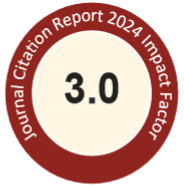Abstract
Atherosclerosis plays a key role in the development of cardiovascular diseases, and is often associated with oxidative stress and local inflammation. Thymol, a major polyphenolic compound in thyme, exhibits antioxidant and anti-inflammatory properties. In this study, we measured the in vitro antioxidant activity of thymol, and investigated the effect of thymol on high-fat-diet-induced hyperlipidemia and atherosclerosis. New Zealand white rabbits were fed with regular chow, high-fat and high-cholesterol diet (HC), T3, or T6 (HC with thymol supplementation at 3 mg/kg/d or 6 mg/kg/d, respectively) for 8 weeks. Aortic intimal thickening, serum lipid parameters, multiple inflammatory markers, proinflammatory cytokines, and atherosclerosis-associated indicators were significantly increased in the HC group but decreased upon thymol supplementation. In summary, thymol exhibits antioxidant activity, and may suppress the progression of high-fat-diet-induced hyperlipidemia and atherosclerosis by reducing aortic intimal lipid lesion, lowering serum lipids and oxidative stress, and alleviating inflammation-related responses. © 2016
ScienceDirect Link
Recommended Citation
Yu, Y.-M.; Chao, T.-Y.; Chang, W.-C.; Chang, M.J.; and Lee, M.-F.
(2016)
"Thymol reduces oxidative stress, aortic intimal thickening, and inflammation-related gene expression in hyperlipidemic rabbits,"
Journal of Food and Drug Analysis: Vol. 24
:
Iss.
3
, Article 12.
Available at: https://doi.org/10.1016/j.jfda.2016.02.004
Creative Commons License

This work is licensed under a Creative Commons Attribution-Noncommercial-No Derivative Works 4.0 License.
Fulltext URL
https://www.sciencedirect.com/science/article/pii/S1021949816300230/pdfft?md5=9a3e3ae6a3b078d673372c7960ef2874&pid=1-s2.0-S1021949816300230-main.pdf
Included in
Food Science Commons, Medicinal Chemistry and Pharmaceutics Commons, Pharmacology Commons, Toxicology Commons

